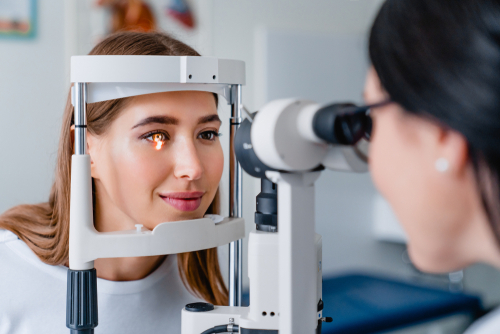Addressing Bipolar Disorder With Expert Care

When tackling bipolar disorder with expert care, rely on specialized healthcare providers for tailored treatment plans. Expert diagnosis is essential for precise identification and management. Seek early intervention to stabilize mood swings and prevent severe episodes. A personalized treatment plan, considering all life aspects, is crucial. Specialized therapists target specific symptoms and enhance mental and physical health. Establish a structured support system—peer groups and community resources play key roles. Build stability with routines, therapy, mindfulness, and a balanced lifestyle. Avoid triggers that can exacerbate mood swings. Trust in expert care for effective bipolar disorder management.
Importance of Expert Diagnosis
Expert diagnosis is essential in accurately identifying and managing bipolar disorder. When symptoms first emerge, seeking early intervention from a healthcare professional is important. Proper medication can help stabilize mood swings and prevent severe episodes.
It’s essential to consult with a psychiatrist specializing in mood disorders to receive a thorough evaluation. They’ll conduct detailed assessments, including a detailed medical history, symptom observation, and possibly psychological testing. The psychiatrist will determine if the symptoms align with bipolar disorder or another condition, ensuring an accurate diagnosis.
This process is critical as it lays the foundation for developing an effective treatment plan tailored to your needs. By receiving expert diagnosis and guidance, you can navigate the complexities of bipolar disorder more effectively and work towards achieving stability in your mental health.
Personalized Treatment Plans
Crafting a personalized treatment plan is essential in effectively managing bipolar disorder and addressing individual needs. When it comes to bipolar disorder, a holistic approach that considers all aspects of your life is vital. Your treatment plan should be tailored specifically to you, taking into account your unique symptoms, preferences, and lifestyle.
By embracing individualized care, healthcare providers can work with you to develop a plan that not only focuses on medication management but also incorporates therapy, lifestyle changes, and support systems.
A holistic approach means looking at the big picture and understanding how various factors contribute to your well-being. Your personalized treatment plan should address not only the symptoms of bipolar disorder but also your emotional, social, and physical needs.
Role of Specialized Healthcare Providers
Utilizing the expertise of specialized healthcare providers can greatly enhance the management of bipolar disorder. These professionals offer a range of specialized therapy options and take a holistic approach to address the complexities of the disorder. By working within a multidisciplinary team, they guarantee that individuals receive individualized care tailored to their unique needs. This collaborative approach allows for a thorough treatment plan that considers not only the symptoms of bipolar disorder but also the individual’s overall well-being.
| Specialized Healthcare Providers | Benefits |
|---|---|
| Offer specialized therapy options | Target specific symptoms |
| Take a holistic approach | Address mental & physical health |
| Work within a multidisciplinary team | Provide diverse perspectives |
| Provide individualized care | Tailor treatment plans |
| Collaborate for comprehensive care | Enhance overall well-being |
With the support of specialized healthcare providers, individuals with bipolar disorder can access a higher level of care that goes beyond just managing symptoms, focusing on their long-term health and quality of life.
Ongoing Support for Individuals
To ensure ongoing support for individuals managing bipolar disorder, it’s important to establish a structured network of resources and professionals who can provide consistent care and guidance. Peer support plays an essential role in this network, offering individuals the opportunity to connect with others who understand their experiences. Being able to share challenges and successes with peers can provide a sense of belonging and validation that’s crucial in managing the disorder.
Community resources also play a significant role in providing ongoing support. These resources may include support groups, educational workshops, and access to mental health professionals. Community-based organizations can offer valuable services such as counseling, therapy, and assistance in navigating the healthcare system. By utilizing these resources, individuals can build a strong support system that extends beyond formal healthcare settings.
Achieving Greater Stability
Establish a daily routine to help achieve greater stability while managing bipolar disorder. By incorporating holistic approaches and lifestyle changes into your daily life, you can effectively manage your symptoms and work towards greater stability.
Holistic approaches involve treating the whole person, not just the symptoms of bipolar disorder. This may include therapy, mindfulness practices, exercise, and a balanced diet. Engaging in activities that promote mental and physical well-being can have a pivotal impact on your overall stability.
In addition to holistic approaches, making lifestyle changes can play an essential role in achieving greater stability. This may involve setting regular sleep patterns, maintaining a healthy diet, exercising regularly, and avoiding substances that can exacerbate mood swings.
Frequently Asked Questions
Can Lifestyle Changes Impact Bipolar Disorder Symptoms?
Making lifestyle changes can influence bipolar disorder symptoms. By focusing on dietary modifications, exercise routines, stress management, and sleep hygiene, you can positively impact your mental health and overall well-being. Consistency is key.
Are There Any Alternative Therapies for Bipolar Disorder?
You can explore alternative therapies for bipolar disorder. Consider trying mindfulness techniques to manage stress and emotions. Acupuncture therapy may also offer relief from symptoms. Always consult with a healthcare provider before starting any new treatments.
How Do I Find a Support Group for Bipolar Disorder?
To find a support group for bipolar disorder, you can search online forums for virtual connections or check local meetups for in-person gatherings. These resources offer valuable support and understanding from others facing similar challenges.
Can Bipolar Disorder Affect Relationships and Work?
Bipolar disorder can impact relationships with mood swings affecting social interactions. Work productivity may suffer due to fluctuating energy levels. Seek support and communicate openly with loved ones and colleagues to navigate relationship challenges and career advancement.
Is It Safe to Mix Herbal Supplements With Prescribed Medications?
It’s crucial to be cautious when mixing herbal supplements with prescribed medications. Risks include potential interactions that could affect your health. Always consult with your healthcare provider to confirm compatibility and take necessary precautions.
Conclusion
Overall, addressing bipolar disorder with expert care is essential for managing symptoms and achieving greater stability in your life.
With personalized treatment plans, specialized healthcare providers, and ongoing support, you can receive the help you need to navigate the challenges of this mental health condition.
Remember, you aren’t alone in this journey, and seeking professional help is the first step towards living a healthier, more balanced life.






